In this blog, I want to talk about how caffeine affects our brain chemistry, specifically to take a look at the major neurotransmitters that are at play when we have a cup of coffee.

- Adenosine: Adenosine is the main neurotransmitter affected by caffeine and this is the mechanism through which all the other effects occur.Adenosine is a substance (a ‘purine nucleoside) that is produced in the brain as our neurons fire. Over time more and more accumulates and has the effect of suppressing arousal and reducing the amount of firing. In other words, it accumulates throughout the day and slows us down to the point where we feel ready for bed. What caffeine does is to block the adenosine receptors (specifically the A1 receptors making it an A1 antagonist) by mimicking adenosine, thus preventing them from detecting the real stuff. In other words, caffeine renders the adenosine inert, making us feel more awake and alert as a result. So adenosine is the break that slows down our brain’s horsepower, and caffeine dampens those breaks. This is how it helps to combat tiredness and brain fog.
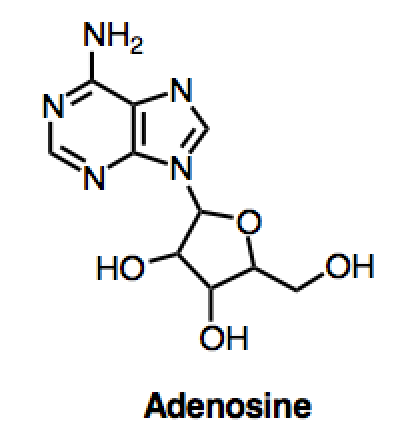
Glutamate: When you block the A1 receptors, this results in the neurons throughout the brain firing much more regularly and rapidly. To the brain this suggests something important is going on, so it responds by releasing more neurotransmitters – specifically stimulants that are involved in attention and learning.
Glutamate is one such ‘excitatory’ neurotransmitter which has an important role in ‘long-term potentiation’. What this means, is that glutamate increases the strength of the connection between neurons that fire at the same time. This then means that if one of those neurons fires independently, it is more likely to trigger the other one. This way glutamate, and so caffeine, can aid learning and at the same time even increase brain plasticity.
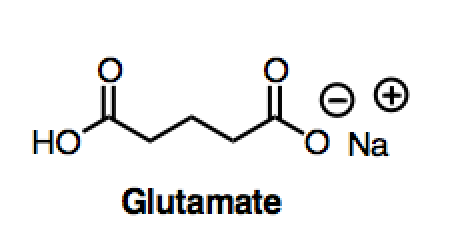
Dopamine: Dopamine we often know as the ‘reward chemical’ in the brain, but it’s important to understand that this isn’t a straightforwardly accurate description. Dopamine is released when we do something ‘good’ yes, and this way our actions are reinforced such that we are likely to repeat them again. However dopamine is not what creates the feeling of enjoyment for that stimulus, it just helps to cement the connection. At the same time, dopamine can also be released during a ‘near miss’ such that it also reinforces ‘nearly useful’ behaviors and is also involved in the ‘anticipation’ of reward. So it’s complex. This all takes place in the ‘mesolimbic pathway’ also known as the ‘reward pathway’ where dopamine acts on the D2 receptors.
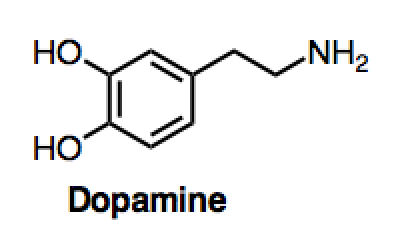
Epinephrine (Adrenaline):Now your brain is lighting up like a Christmas tree which tells your body that something really important must be going on. Normally you wouldn’t be this alert and focused unless you were being chased by a lion, and thus the adrenal glands kick in in order to release adrenaline. Adrenaline is the hormone that creates the ‘fight or flight’ response. It speeds up our metabolism and our heart rate, it directs blood flow away from ‘unnecessary’ processes like digestion and it actually increases physical strength. It’s also what can lead to caffeine making us jittery and anxious and it makes it very hard for us to get to sleep.
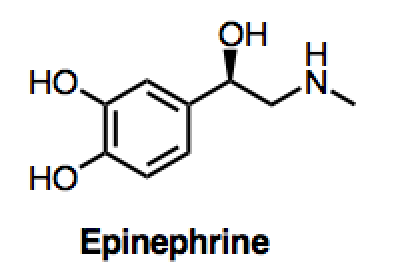
Cortisol: Cortisol is the ‘stress hormone’ and this can increase alongside adrenaline when you take in caffeine. Cortisol can make you feel anxious, but it can also stimulate the release of insulin, thus resulting in your blood sugar getting used up and stored as fat while also making you hungry for snacks. If you’re dieting then, caffeine might actually contribute to snacking and lipogenesis. Many people start their day with caffeine, which is possibly a mistake as this is when we have the most cortisol in our system already.

Serotonin: Serotonin is often called the ‘feel good hormone’ and is used to regulate the mood (as well as to aid in memory, sleep and various other functions). When caffeine increases the amount of cortisol, serotonin levels increase too to try and counterbalance this. This is important to consider when thinking about brain chemistry – nothing occurs in a vacuum and altering any one neurotransmitter is almost bound to affect countless others.
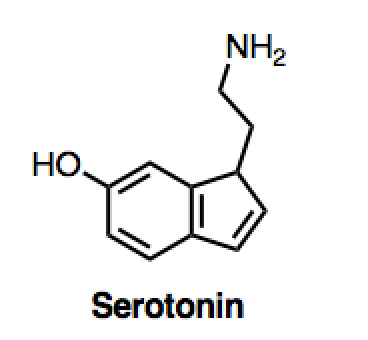
Caffeine Tolerance and Withdrawal
- When you elevate levels of anything in the brain artificially, the brain tends to react by changing its composition permanently in order to account for that. This way we can build up a ‘tolerance’ for caffeine meaning we need more in order to achieve the same effect we previously experienced, and we might suffer with withdrawal symptoms when attempting to cut back.
How this tolerance comes about is a topic that’s debated. It may be that the brain creates more adenosine receptors, or that they become a little less susceptible to caffeine. - Meanwhile though, living with elevated levels of the various neurotransmitters described above could also lead to other changes in the brain. Studies show that drinking caffeine over a long time can decrease your norepinephrine and epinephrine receptors, as well as your serotonin and dopamine receptors. All this could suggest that the brain would be less ‘on’ without the presence of caffeine to give it that boost – unless you go cold turkey for a while (causing headaches, nausea and possible depression for a week or two).And the reason that first cup of coffee feels so good in the morning may even be to do with the fact that you were experiencing withdrawal. Cutting back on caffeine might just be the better long term solution for brain fog.
The average ‘half-life’ of caffeine is 6 hours meaning it wears off after that time. If you’re on the pill or if you’re menstruating, then this can take up to twice as long. And if you’re a smoker then the nicotine will cut it in half so it will wear off after three hours (why many smokers are also caffeine addicts among other reasons). As you can imagine, it’s common to experience something of a ‘crash’ at this point once the A1 receptors open up again and that adenosine comes rushing in just when your body is exhausted from being in a state of hyperarousal.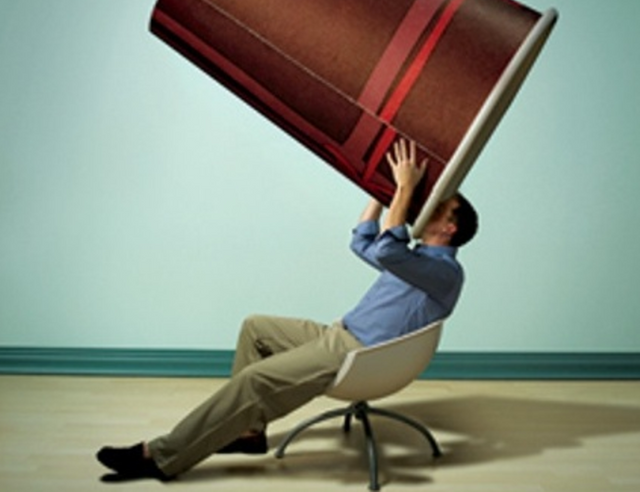
What can we take from this Information
So that’s how caffeine works on the brain in essence. It can aid learning and brain neuroplasticity, but in the long term it might actually make you sluggish and tired. It can also lead to several ‘peaks and troughs’ and may encourage weight gain – even though it increases your metabolism.don’t like it either or I love coffee and tea. So what’s the answer?
That’s up to you, I’m just providing some information. I can though tell you what I’m going to do which is to 1.)cut back a little and 2.) avoid having caffeine in the latter half of the day so that my brain can actually recover properly during the night. I’m only going that far because I really like caffeine and to be honest, I feel pretty fine as I am. I did try cutting back on caffeine once before, and I might do that experiment again sometime now I’m older and wiser, but I have other things on my mind at the moment.And if I were to use caffeine strictly as a nootropic, I’d probably go about it by quitting for a bit to get rid of my tolerance, then drinking a large amount only when trying to learn new things in order to take advantage of the effects it has on learning, attention and association. If you try that, let me know how it works out for you!
░░░░░░░░▌▒█░░░░░░░░░░░▄▀▒▌
░░░░░░░░▌▒▒█░░░░░░░░▄▀▒▒▒▐
░░░░░░░▐▄▀▒▒▀▀▀▀▄▄▄▀▒▒▒▒▒▐
░░░░░▄▄▀▒░▒▒▒▒▒▒▒▒▒█▒▒▄█▒▐
░░░▄▀▒▒▒░░░▒▒▒░░░▒▒▒▀██▀▒▌
░░▐▒▒▒▄▄▒▒▒▒░░░▒▒▒▒▒▒▒▀▄▒▒
░░▌░░▌█▀▒▒▒▒▒▄▀█▄▒▒▒▒▒▒▒█▒
░▐░░░▒▒▒▒▒▒▒▒▌██▀▒▒░░░▒▒▒▀ ▌
░▌░▒▄██▄▒▒▒▒▒▒▒▒▒░░░░░░▒▒▒ ▌
▀▒▀▐▄█▄█▌▄░▀▒▒░░░░░░░░░░▒▒ ▐
▐▒▒▐▀▐▀▒░▄▄▒▄▒▒▒▒▒▒░▒░▒░▒▒ ▒▌
▐▒▒▒▀▀▄▄▒▒▒▄▒▒▒▒▒▒▒▒░▒░▒░▒ ▐
░▌▒▒▒▒▒▒▀▀▀▒▒▒▒▒▒░▒░▒░▒░▒▒ ▌
░▐▒▒▒▒▒▒▒▒▒▒▒▒▒▒░▒░▒░▒▒▄▒▒
░░▀▄▒▒▒▒▒▒▒▒▒▒▒░▒░▒░▒▄▒▒▒▒
░░░░▀▄▒▒▒▒▒▒▒▒▒▒▄▄▄▀▒▒▒▒▄▀
░░░░░░▀▄▄▄▄▄▄▀▀▀▒▒▒▒▒▄▄▀
░░░░░░░░░▒▒▒▒▒▒▒▒▒▒
░░░░░░░░░▒▒▒▒▒▒▒▒▒▒
doggo is pleased
Downvoting a post can decrease pending rewards and make it less visible. Common reasons:
Submit
I have about two cups a of coffee a day. Primarily due to long work hours and commute. Tea is definitely a better replacement that I've been trying to implement since it also provides a calming effect as well as other health benefits.
Downvoting a post can decrease pending rewards and make it less visible. Common reasons:
Submit
Tea is def a good alternative, you try yerba mate. it's supposed to be relatively strong and good for you.
Downvoting a post can decrease pending rewards and make it less visible. Common reasons:
Submit
I drink a liter of coffee every day
Downvoting a post can decrease pending rewards and make it less visible. Common reasons:
Submit
I personally drink cold brew probably once a day lol.
Downvoting a post can decrease pending rewards and make it less visible. Common reasons:
Submit
Mine's always cold too!
I brew it extremely strong then refrigerate.
Mmm, Mmm, good!
Downvoting a post can decrease pending rewards and make it less visible. Common reasons:
Submit
Hi! I am a robot. I just upvoted you! I found similar content that readers might be interested in:
http://www.thebioneer.com/caffeine-affects-neurotransmitters-profoundly-changes-brain/
Downvoting a post can decrease pending rewards and make it less visible. Common reasons:
Submit
upvoted and resteemed :)) thinking about one now....
Downvoting a post can decrease pending rewards and make it less visible. Common reasons:
Submit
Thanks!
Downvoting a post can decrease pending rewards and make it less visible. Common reasons:
Submit
no worries good article :))))
Downvoting a post can decrease pending rewards and make it less visible. Common reasons:
Submit
Personally I survive on Coke Zero...
Downvoting a post can decrease pending rewards and make it less visible. Common reasons:
Submit
I get super relaxed and sleepy when i drink coffee. I guess my wiring is a little different.
Downvoting a post can decrease pending rewards and make it less visible. Common reasons:
Submit